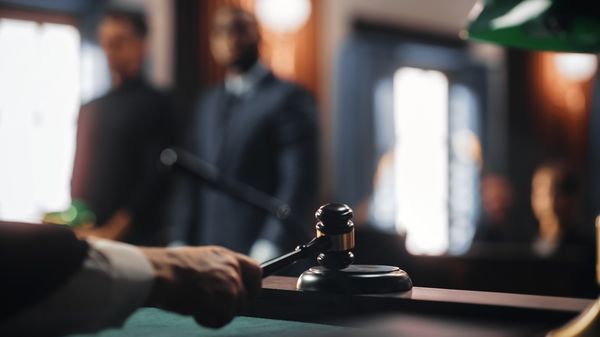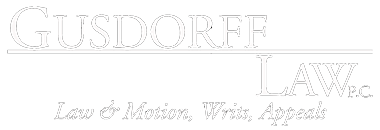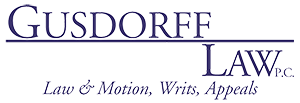- Appellate Litigation
Appeals cost money, a fact which can at first make a party hesitant to pursue one. However, appellants can potentially recover certain costs related to their appeals in state and federal court. The ability to do so helps ensure equal access to the courts and promote justice. As you prepare your appeal, you should know which costs are recoverable in California state and Ninth Circuit federal appeals.
Gusdorff Law specializes in state and federal appellate litigation in California. Here, we explain more about recovering appeals costs.
State Appeals:
In California state appeals, the prevailing party in a non-juvenile civil case is entitled to recover costs under Rule 8.278. The respondent is the prevailing party if the Court of Appeal dismisses the appeal or affirms the judgment without modification. But if the court reverses the trial judgment entirely, the appellant is the prevailing party.
It’s more complicated if the Court of Appeal reverses the judgment in part or modifies it. The same is true if there’s more than one notice of appeal. In these circumstances, the Court of Appeal may award or deny costs as it deems proper, but must state so in its decision.
The prevailing party may recover the following:
- Filing fees
- The amount the party paid for any portion of the record, whether an original or a copy or both
- The cost to produce additional evidence on appeal
- The costs to notarize, serve, mail, and file the record, briefs, and other papers
- The cost to print and reproduce any brief, including any petition for rehearing or review, answer or reply
- The cost to procure a surety bond and related costs, unless the trial court determines the bond was unnecessary
- Costs incurred to deposit funds with the superior court instead of a bond or undertaking, unless determined to be unnecessary
Attorney’s fees may be sought under a different rule, 3.1702.
The Court of Appeal must record, and insert in the remittitur, a judgment awarding costs. Within 40 days of the remittitur, the party claiming costs must serve and file a verified memorandum in Superior Court. This memorandum will detail the costs. Once awarded, these costs are enforceable as a money judgment.
If you would like to learn more about when appealing is economically sound, view this page.
Ninth Circuit Appeals:
Rules 39 of the Federal Rules of Appellate Procedure and Ninth Circuit Rule 39-1 control the recovery of costs for Ninth Circuit appeals. The following rules apply unless a different statute controls or the court orders differently:
- If an appeal is dismissed, costs are taxed (assessed) against the appellant, unless the parties agree otherwise.
- If a judgment is affirmed, costs are taxed against the appellant.
- If a judgment is reversed, costs are taxed against the appellee.
- If a judgment is affirmed in part, reversed in part, modified, or vacated, costs are taxed as the court orders.
Costs on appeal are recoverable in the federal district court. The following may be recovered:
- The preparation and transmission of the record on appeal
- The reporter’s transcript, if needed to determine the appeal
- Premiums paid for a bond or other security to preserve rights pending appeal
- The fee for filing the notice of appeal
The party claiming costs has 14 days after the judgment is entered to serve an itemized statement of costs. Objections to the requested costs must be filed within 14 days after service of the statement. The court may extend time to object. The clerk will prepare the statement for insertion in the mandate.
Circuit Rule 39-1 contains additional requirements concerning paper copies of the briefs or excerpts of record reproduced. The rule also specifies that an untimely-filed statement of costs will be denied, unless good cause has been demonstrated.
Attorney’s fees may be requested under Rule 39-1.6. This request is governed by its own deadline. It must be filed within 14 days of the expiration of the period to petition for rehearing. If a petition for rehearing is timely filed, the court will dispense with it first. The party requesting attorney’s fees then has 14 days to ask for the fees.
A memorandum must accompany the request for attorney’s fees. It must show:
- That the party requesting the fees is entitled to such fees
- A detailed itemization of the tasks performed
- That the hourly rates are justified
- Verification that the information provided is accurate
Learn More About Recovering Appeals Costs in California:
Recovering appellate costs is certainly a process, and careful attention to details is necessary. But that process should not deter a party from appealing a case. If you’re considering an appeal in California state or federal courts, learn more about recoverable costs. Reach out to Gusdorff Law today.








